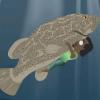Sign in to follow this
Followers
0

Pituri plants available later this year.
By
Happy Cadaver, in Seed & Plant Swaps

By
Happy Cadaver, in Seed & Plant Swaps